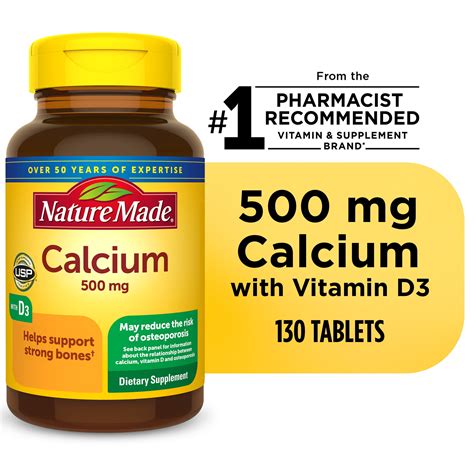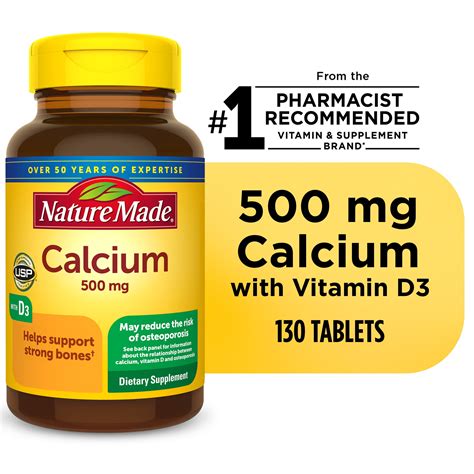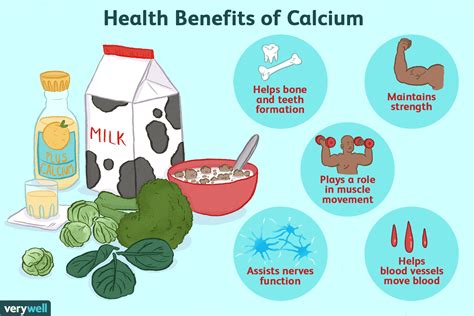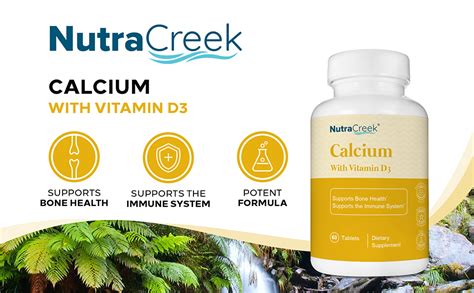Intro
Boost bone health with Calcium Vitamin D supplements, enhancing absorption and supporting strong teeth, muscles, and immune function, while reducing osteoporosis risk and promoting overall wellness.
The importance of maintaining strong bones and overall health cannot be overstated, and one crucial aspect of achieving this is through the consumption of essential nutrients. Among these, calcium and vitamin D stand out as particularly vital, playing a central role in bone health and numerous other bodily functions. The combination of calcium and vitamin D in supplements has become a popular choice for individuals seeking to enhance their bone density, reduce the risk of fractures, and support overall well-being. This article delves into the benefits of calcium vitamin D supplements, exploring their working mechanisms, the steps to incorporate them into your diet, and the practical examples of their effectiveness.
The human body relies heavily on calcium for the development and maintenance of strong bones and teeth, as well as for the proper functioning of muscles and nerves. Vitamin D, on the other hand, is crucial for the absorption of calcium, thereby indirectly contributing to bone health. It also plays a significant role in the regulation of the immune system and the reduction of inflammation. The synergy between calcium and vitamin D is what makes their combination in supplements so beneficial. By ensuring adequate intake of both, individuals can significantly reduce the risk of osteoporosis, a condition characterized by weakened bones that are more susceptible to fractures.
As people age, the risk of osteoporosis increases, making it essential for older adults to maintain adequate levels of calcium and vitamin D. This is particularly important for postmenopausal women, who are at a higher risk due to the decrease in estrogen levels, which can accelerate bone loss. Furthermore, individuals with limited sun exposure, those with darker skin, and people with certain medical conditions may also require supplements to meet their vitamin D needs, as sunlight is a natural source of this vitamin. The benefits of calcium vitamin D supplements extend beyond bone health, with research suggesting potential benefits in reducing the risk of certain diseases, such as diabetes and hypertension, although more research is needed to confirm these findings.
Understanding Calcium and Vitamin D

Benefits for Bone Health
The most recognized benefit of calcium vitamin D supplements is their contribution to bone health. By promoting calcium absorption, vitamin D helps in the formation and maintenance of strong bones. This is particularly beneficial for preventing and treating conditions like osteoporosis and rickets. Osteoporosis, a disease characterized by a decrease in bone mass and density, leading to an increased risk of fractures, can be significantly managed with adequate calcium and vitamin D intake. Rickets, a condition that affects children, causing soft and weakened bones, can also be prevented with sufficient levels of these nutrients.Working Mechanism of Calcium Vitamin D Supplements

Steps to Incorporate Calcium Vitamin D Supplements
Incorporating calcium vitamin D supplements into your diet can be straightforward, but it requires careful consideration to ensure you're meeting your nutritional needs without exceeding safe intake levels. Here are some steps to follow: - Consult with a healthcare provider to determine the appropriate dosage for your specific needs. - Choose a supplement that contains the recommended daily intake of both calcium and vitamin D. - Consider your diet and ensure you're not exceeding the daily recommended intake when combining supplements with dietary sources. - Monitor your body's response to the supplements and adjust your intake as necessary.Practical Examples and Statistical Data

Common Misconceptions and FAQs
Despite the well-documented benefits of calcium vitamin D supplements, there are common misconceptions that need to be addressed. One of the primary concerns is the risk of kidney stone formation due to high calcium intake. However, research suggests that this risk is minimal when calcium is consumed as part of a balanced diet or through supplements. Another misconception is that vitamin D is not essential for individuals who receive adequate sunlight. While sunlight does trigger the synthesis of vitamin D in the skin, many factors, including skin color, age, and geographic location, can affect the amount of vitamin D produced, making supplements a viable option for many.What are the primary benefits of calcium vitamin D supplements?
+The primary benefits include supporting bone health, reducing the risk of osteoporosis and fractures, and potentially lowering the risk of certain diseases like diabetes and hypertension.
How do I choose the right calcium vitamin D supplement?
+Choose a supplement that contains the recommended daily intake of both calcium and vitamin D, and consult with a healthcare provider to determine the best option for your specific needs.
Can I get enough calcium and vitamin D through diet alone?
+While it's possible to get some calcium and vitamin D through dietary sources, many individuals may require supplements to meet their daily needs, especially if they have limited sun exposure, follow a vegan diet, or have certain medical conditions.
Encouraging Engagement and Further Exploration

